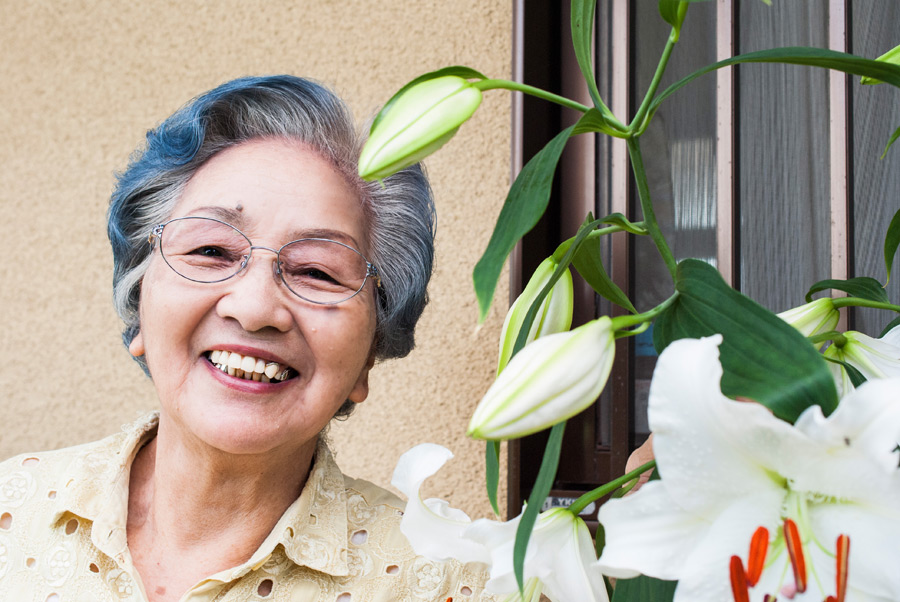“You look young!”
On a Saturday afternoon, I sat down on a chair at the entrance of a department store to rest my tired legs after shopping. At the entrance, there were two elderly women with silver hair sitting next to me and were talking to each other. “Do you often come to this department store?” asked one woman. “No, the first time in three months. I used to come here for shopping every week when I was young. I am too old now.” said another woman. Then, the woman nodded and asked, “I see. how old are you?” “I am 90 years old.” “Wow, you look so young! I am 88 years old.” “Oh, you look young too! I thought you are in your 70s.” Both were laughing and complimented each other for how youthful they are.
Not compliment – Looking younger and healthier
Even with my eyes, they did look younger than the age they mentioned. I thought both were in their 70s because their facial skins looked rosy and plump. At the time when leaving the place, they stood out without any assistance and walked away. They were physically healthy, too.
Japanese over 65 years old get healthier than before. According to the Japan Sports Agency’s report: Physical Fitness/Exercise Ability Survey in 2018, physical strengths and athlete abilities among Japanese with 65 – 79 years old continue to improve. The two women were not exceptions in Japan. Elderly people in better health have a longer life expectancy.
Motivation for being healthy
The good healthcare system and nutrition consciousness in Japanese diets have contributed to the extended life expectancy after the World War II. However, it is not just about the system and diets that have contributed to the longevity in Japan. The mindset of the Japanese also drives them to make efforts to being healthy “not to bother people.”
In Japan, people pay attention to prevent bothering others. For example, in winter, people wear masks to prevent spreading viruses when they cough. Another example is sound covering systems that mask natural sounds from bodies to avoid making others annoyed. Elderly people try to stay healthy not to be a burden on their family. A good death in Japan is dying suddenly peacefully (“Pokkkuri Shinu”) after living long and healthy.
But aging is inevitable
Even you stay healthy, aging in the body is coming. Presbyopia and presbycusis are normal age-related problems. I started to have problems seeing at close distances when I work on my smartphone a couple of years ago. My friends around my age wear glasses when they read papers. I almost shout to my relative at around 90 years old when I talk to her loudly. Aging also affects our bodies to become stiff and less flexible in movements.
Age-unfriendly products
Yet many products and services target young people in the Japanese market, not taking the elderly into account. Labels on packaged foods are too small to read. The lid of the soy sauce bottle is hard to open. Microwaves with lots of buttons are confusing. Elderly people try to use them but find they are unable to do what the young people do. “Well, I am too old…” they say, and walk away. A sale lost. Can we do anything to solve them?
Aging can be the global topic
Japan is in the front line of the aging population tend to be seen in countries both developed and emerging. According to the WHO, between 2015 and 2050, the proportion of the world’s population over 60 years will nearly double from 12% to 22%, and the rate of this demographic change is getting faster than ever.
People become healthier and look younger than their age under the medical treatment system and healthy diets and habits. However, their efforts cannot overcome age-related changes and problems in their bodies.
The Japanese elderly do not shout to demand, but opportunities are out there.
